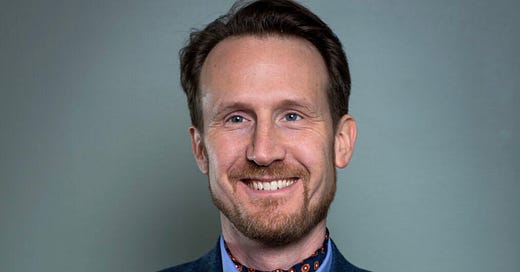Flerie takes a different approach to investing in biotechnology
Ted Fjällman, CEO of investment company Flerie, talks about the biotechnology investment firm's strategy.
Investments in biotechnology are often made by a select group of venture capital investors, large pharmaceutical companies and, to a lesser extent, private angel investors. In other sectors, angel investors can often invest smaller amounts in investment rounds of start-up companies.
Flerie is an investment company that wants to do things differently. With a listing on the Swedish stock exchange, representatives covering Sweden, UK and Switzerland, Flerie invests in biotech companies across Europe, the US and Israel. The company targets entrepreneurs with scientific and commercial backgrounds and invests mostly in drug development, including cell and gene therapy, vaccines, biologics and small molecules. At the helm is Dr Ted Fjällman, a molecular biologist who has founded several companies himself.
Biotech innovation
Ted Fjällman grew up in Sweden, Switzerland and New Zealand. After studying at the University of Waikato, he moved to Sweden to continue his studies in Gothenburg. After obtaining his PhD in Canada, he worked in several biotech companies. From 2014 to 2021 he was CEO of Prokarium. Flerie also invests in Dutch biotech companies, including Amarna Therapeutics, Synerkine Pharma and Mendus. ‘’Sweden and the Netherlands work well together. My colleagues at Flerie agree. We have two Dutch investments as well. I previously lived in Katwijk for three months when I did an internship at the European Space Agency. I appreciate the Dutch way of communicating.’’
In fact, you could argue that there is a third Dutch investment. Mendus is listed on the Nasdaq in Sweden, but has its R&D department in the Netherlands. ‘’Mendus was created in 2020 from the merger of the Dutch company DCprime and the Swedish company Immunicum AB. Both companies had technologies that complemented each other. It was also a way for Mendus to raise money through the capital markets. Mendus' current team and technology are largely derived from DCprime. Flerie have also co-invested with the Dutch investment companies Thuja Capital and Van Herk Groep.’’
‘’Flerie was founded in 2011 by Thomas Eldered’’, explains Ted Fjällman. ‘’It started out as a relatively unknown investment platform. It has since grown into an investment firm listed on the Nasdaq in Sweden. Our approach is unique. Flerie has an evergreen investment structure that makes it possible to invest for the longer term, from the pre-clinical phase through clinical trials to commercial growth, while shareholders can trade in the stock and are not locked-in for as long as in e.g. a VC fund. The current portfolio of 29 companies is diversified across stages and thematic areas: some are active in oncology and others in autoimmune diseases and some are commercial stage selling on the market.’’
Our approach is unique. Flerie has an evergreen investment structure that makes it possible to invest for the longer term, from the pre-clinical phase through clinical trials to commercial growth, while shareholders can trade in the stock and are not locked-in for as long as in e.g. a VC fund.
Reshaping venture capital
Traditional venture capital is less suited to the complex reality of the biotech sector, argues Ted Fjällman. ‘’A typical venture capital fund has a 10 to 12 year term, but that is rarely enough for biotech companies. This is even more true for funds working with start-ups. We don't have LPs, we have shareholders. Our model is better suited than the traditional VC model for longer-term investments and we believe you can create more value that way.’’
It gives Flerie’s shareholders (read: investors) access to a whole ecosystem. ‘’But the biggest advantage for shareholders is that they are not tied to a fund for 10 years or more. If a shareholder no longer wants to invest, he or she can get out by selling over the market. The shareholders do not have to be private investors. Sweden's fourth largest pension fund is one of our shareholders.’’
Flerie's investment philosophy is strictly methodical. Commercial opportunities are assessed, and the scientific basis remains at the core. ‘’Is there a clear patient need? Is there a willingness and ability to pay? These are the critical first questions. Then the team evaluates the underlying science, patents and the capabilities of the team. I think the science base is more important than the team, to be honest, because individual team members can be replaced.’’
Dr Fjällman is frank about the challenges facing European biotech. ‘’Europe suffers from capital fragmentation. We have too many small pools of capital spread across many projects. The solution is consolidation and strategic focus. We need more co-investments rather than smaller investments in many companies. We have become a victim of our own success in Europe. We have great universities and we invest a lot of public money in them. Many companies come out of these universities, but too many remain non-commercial. People should come together more to build larger companies that feed the ecosystem with trained talent and serial entrepreneurs.’’
A typical venture capital fund has a 10 to 12 year term, but that is rarely enough for biotech companies. This is even more true for funds working with start-ups.
Ted Fjällman has been CEO of Flerie since January 2023, having previously been a partner, venture partner and CEO of portfolio company Prokarium. He is a board member of several drug development companies and was the first CEO of NorthX Biologics after Flerie acquired a manufacturing facility from Charles River to establish this CDMO.
He has previously worked in clinical research and strategy consulting and holds a PhD in Molecular Biology from the University of Guelph, Canada. He has served as a committee member of the UK BioIndustry Association (BIA) and on the board of the international Bacterial Vaccines Network (BactiVac). He also co-founded Tekiu, an international knowledge transfer broker.




